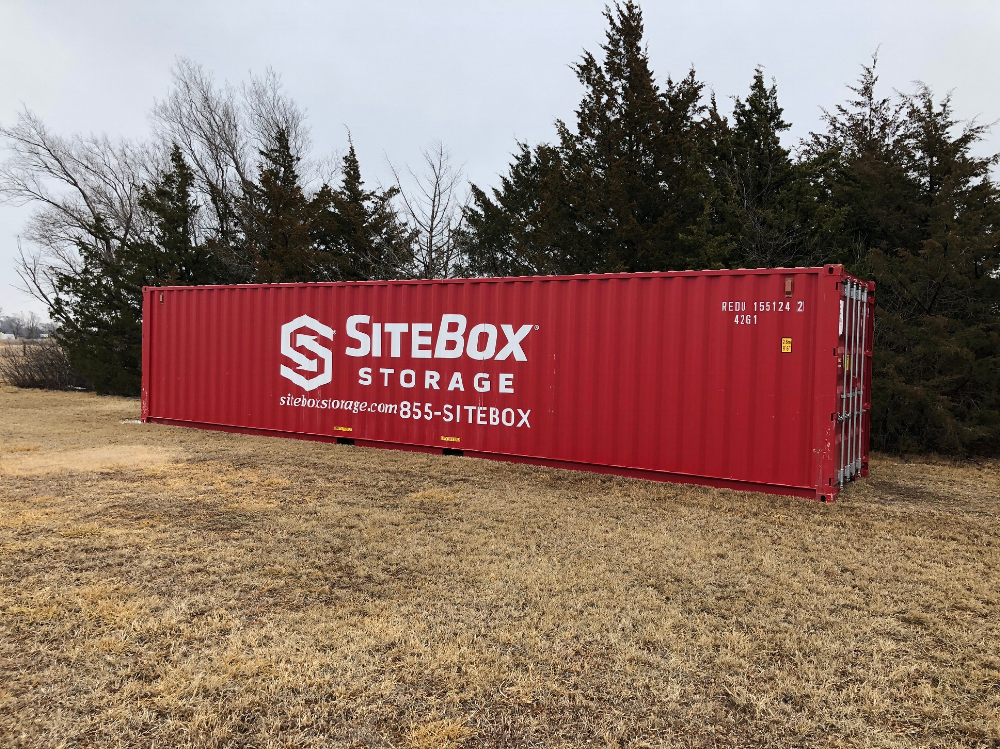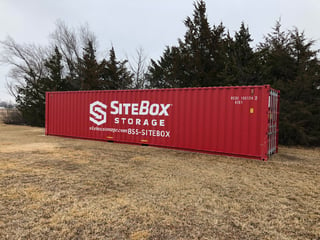The Most Frequently Asked Questions about Conex Boxes

 This post was originally posted in March 2018. It's been updated for clarity and to add more detailed information about conex boxes.
This post was originally posted in March 2018. It's been updated for clarity and to add more detailed information about conex boxes.
Whether you're a construction manager, a retailer, or you’re involved in any field requiring versatile storage solutions, understanding the functionality and adaptability of conex boxes is key. These sturdy containers can solve a variety of storage and space challenges. In this blog post, we'll cover some of the most frequently asked questions, or FAQs, that we hear from business owners. With these questions about conex boxes answered, you'll be able to decide how they can serve your needs and streamline your operations.
What is a Conex Box?
Let's start with the most basic question. What is a conex box? A conex box is a large steel structure designed for the transport and storage of goods. Thanks to the International Organization for Standardization, or ISO, conex boxes have universal specifications that allow them to be transported by rail, truck or ship. Recent years have seen rising use of these boxes for portable storage on construction or other job sites, as a toolbox to keep large job site tools secure, or even decked out with windows and internal walls and used as temporary office space.
There are several different names for conex boxes, like ISO container, intermodal container, cargo container, sea can, c can, or some simply call them a container or shipping container. The name conex (sometimes spelled connex) was originally used by the US Military to refer to “CONtainer EXpress.”
Conex Box Specs
What are conex box dimensions?
Conex boxes are available in several standard sizes, but most of them are either 20’ or 40’ with a ceiling height close to 8’. One with a taller ceiling height is often called a high cube. These dimensions make them highly versatile for various storage and shipping needs.
How much does a conex box weigh?
The weight of a conex box depends on its size and the materials it is constructed from. (SiteBox Storage buys only steel conex boxes.) A 20-foot container typically weighs around 5,000 pounds or more, and a 40-foot container can weigh more than 8,000 pounds. These weights are for the conex boxes themselves and don't include any stored items.
How much weight can a conex box support?
A typical conex box is designed to support a substantial amount of weight. Standard 20-foot conex boxes can typically carry approximately 48,500 pounds, while 40-foot containers can handle around 58,400 pounds. These capacities make conex boxes suitable for a wide range of heavy-duty storage and transport needs.
Buying a Conex Box
How much does a conex box cost?
Like many things, the answer is, “It depends.” The cost of a conex box will be determined by size, condition, and specifications. A barebones unit that is not in the best condition will start around $1000, while something larger, with customizations or extras, in pristine condition, may cost around $20,000. Of course, these are ballpark figures and can vary widely depending on the specific features, the seller, and market conditions.
Can you buy a used conex box?
Yes, you can buy used conex boxes. Buying a used container is an environmentally friendly option since it repurposes existing materials. Because of their durability, conex boxes stay in circulation for many years, which should make buying a used shipping container very easy. However, like  anything, this is largely market-dependent. Newer containers that haven't been used as many times (like one-trip containers) will be more expensive and typically in better shape. Containers that have been in use longer, may be referred to as "cargo worthy" and should be inspected to make sure it meets your expectations.
anything, this is largely market-dependent. Newer containers that haven't been used as many times (like one-trip containers) will be more expensive and typically in better shape. Containers that have been in use longer, may be referred to as "cargo worthy" and should be inspected to make sure it meets your expectations.
Where can I buy a conex box?
There are a few sources that supply conex boxes. There are specialized dealers that specifically deal in shipping containers, and they are often seen in online marketplaces like eBay, Craigslist, and Facebook Marketplace. Some shipping yards sell used containers that are no longer suitable for sea transport. You can sometimes buy them directly from shipping companies when they cycle out older equipment.
The current demand for containers is high, and has been for years, which means available stock moves fast. SiteBox Storage keeps a live inventory of conex boxes on its website, but for the most recent information, it's best to talk to the inside sales team who can assist you with getting quotes on the most current variety of conex boxes for sale from SiteBox Storage.
Can you rent a conex box?
Yes, luckily, you can rent a conex box. Many suppliers offer rental options for various durations, which can be a flexible and cost-effective choice if you need temporary storage or a mobile office space. This allows you to use the container for as long as you need without the commitment of purchasing. SiteBox Storage has options to lease or lease-to-own conex boxes.
Steps to Buying a Conex Box
- Determine your needs. Decide the container size needed for your specific needs and location.
- Set your budget. Consider what condition of conex box you are willing to accept. Will it be new? Used? Is any body damage to the conex acceptable? Set your budget accordingly, and decide if buying is the right decision for you.
- Research suppliers. Look online and check local dealers or shipping companies. And, get a quote from a trusted source like SiteBox Storage.
- Inspect the container for quality and condition.
- Negotiate and purchase. Be sure to ask lots of questions and arrange to inspect the unit before buying.
- Arrange delivery. Organize delivery of the conex box to your location, considering any logistical needs. Use this guide to determine how much room you’ll need to have your conex box delivered.
We hope this FAQ has answered your key questions about conex boxes and helped you understand their versatility and practicality. Whether you're looking to buy or rent, new or used, conex boxes are adaptable enough to meet a wide range of storage and logistical needs across various industries. Remember to assess your requirements, research options, and choose a reliable supplier to ensure you find a solution that is a smart investment in efficiency and security for your next project.
When you are ready to find the perfect conex box for your needs, contact SiteBox Storage to discuss your options or to view our extensive range of products. We’re here to help you make the right choice with confidence.

